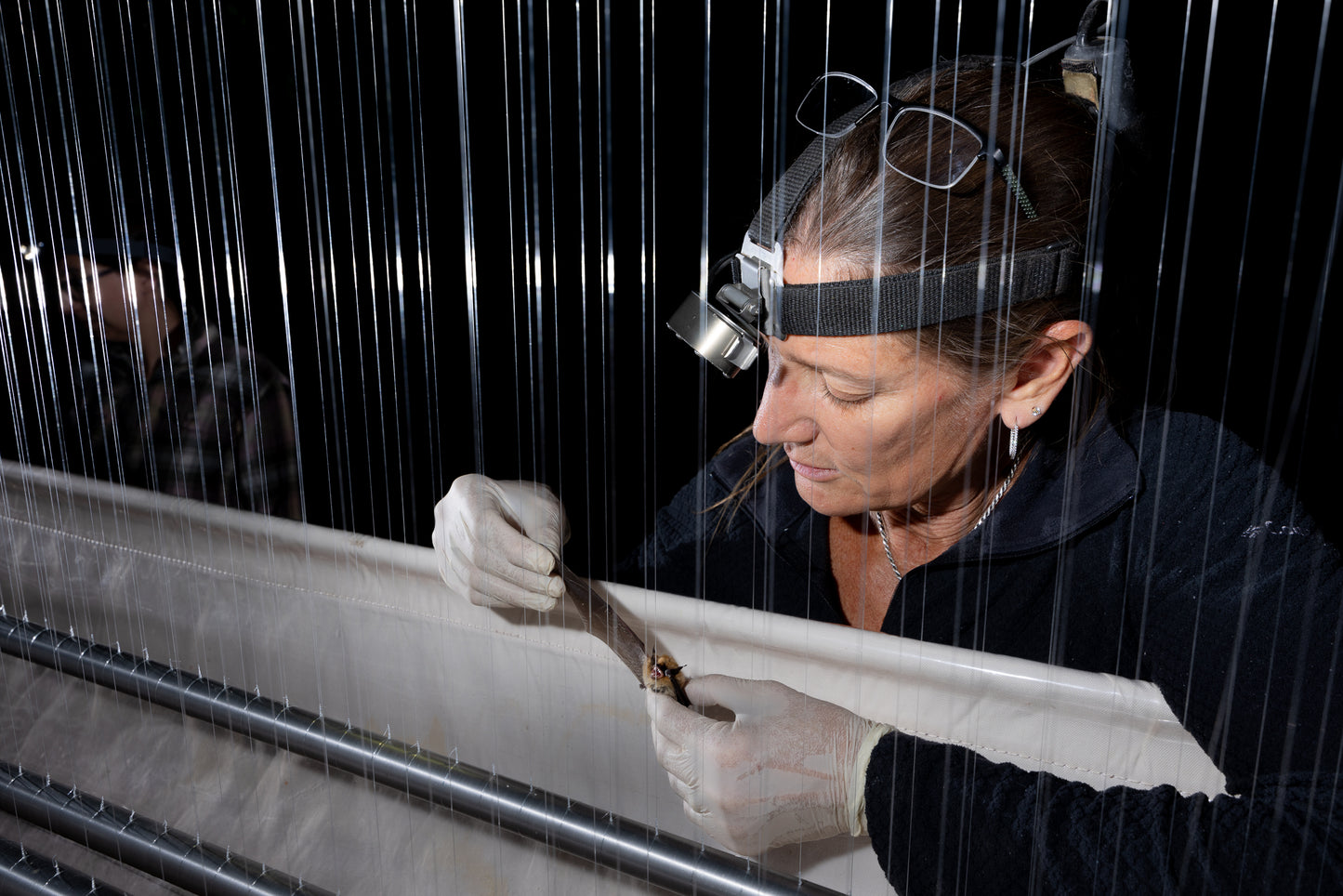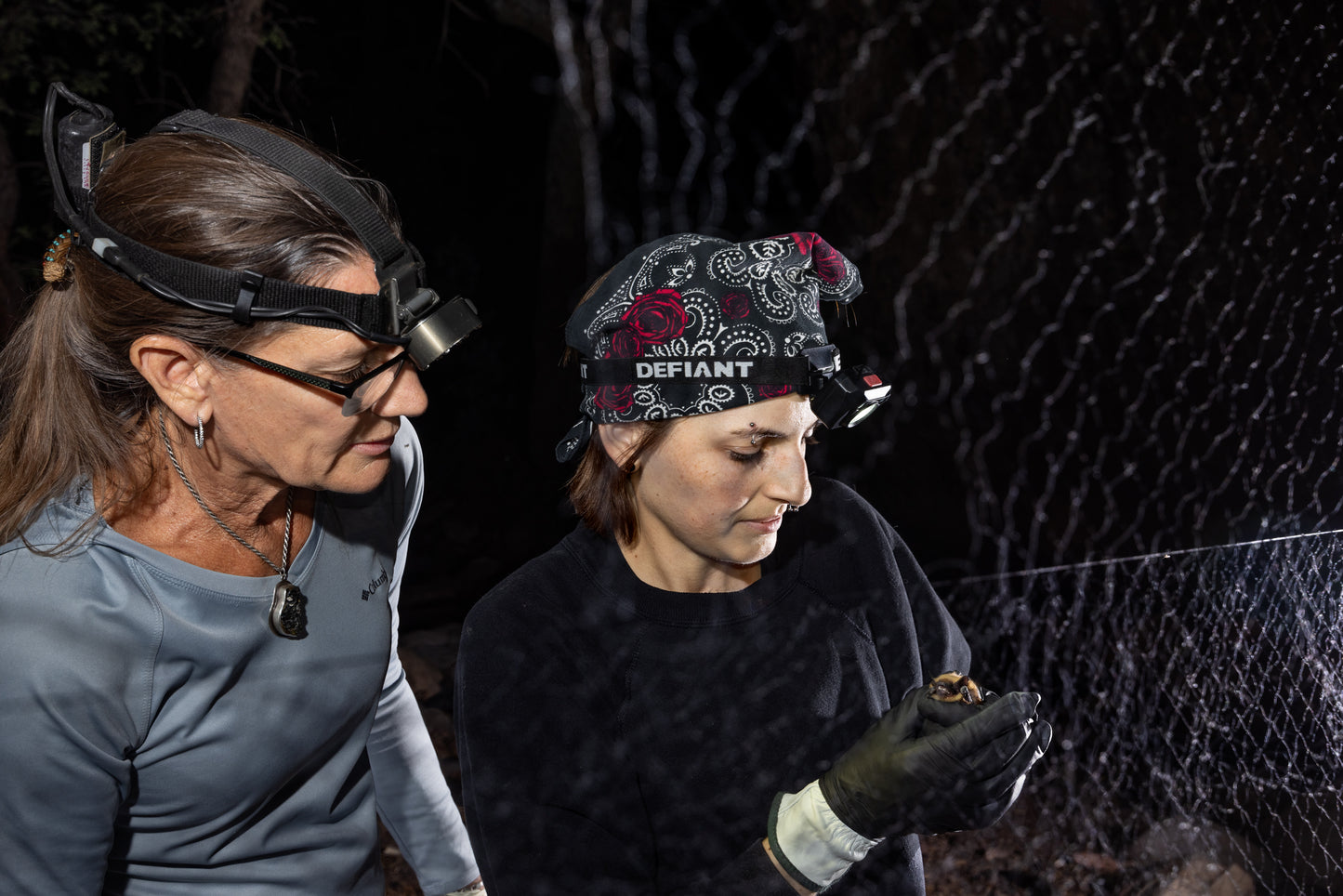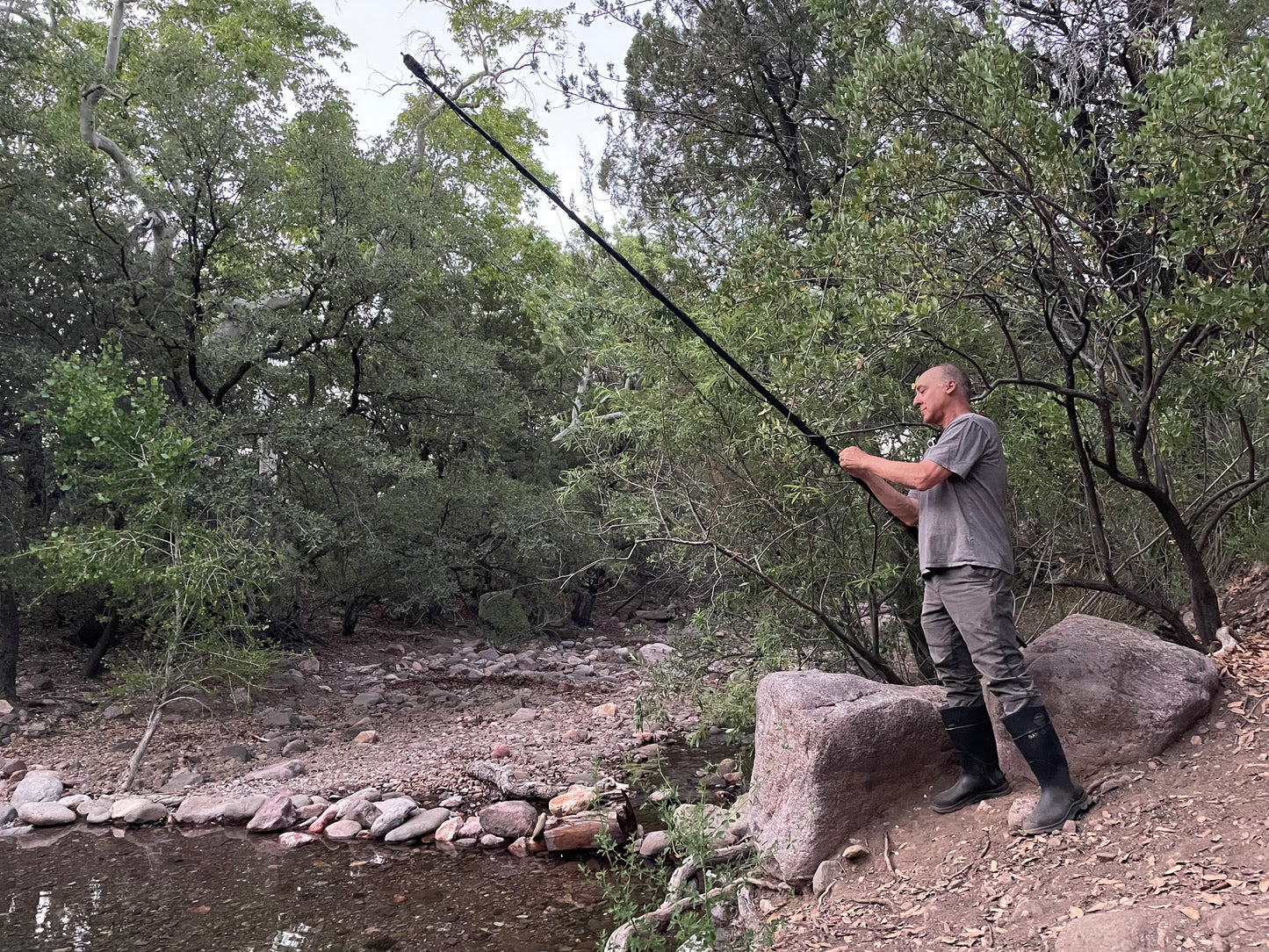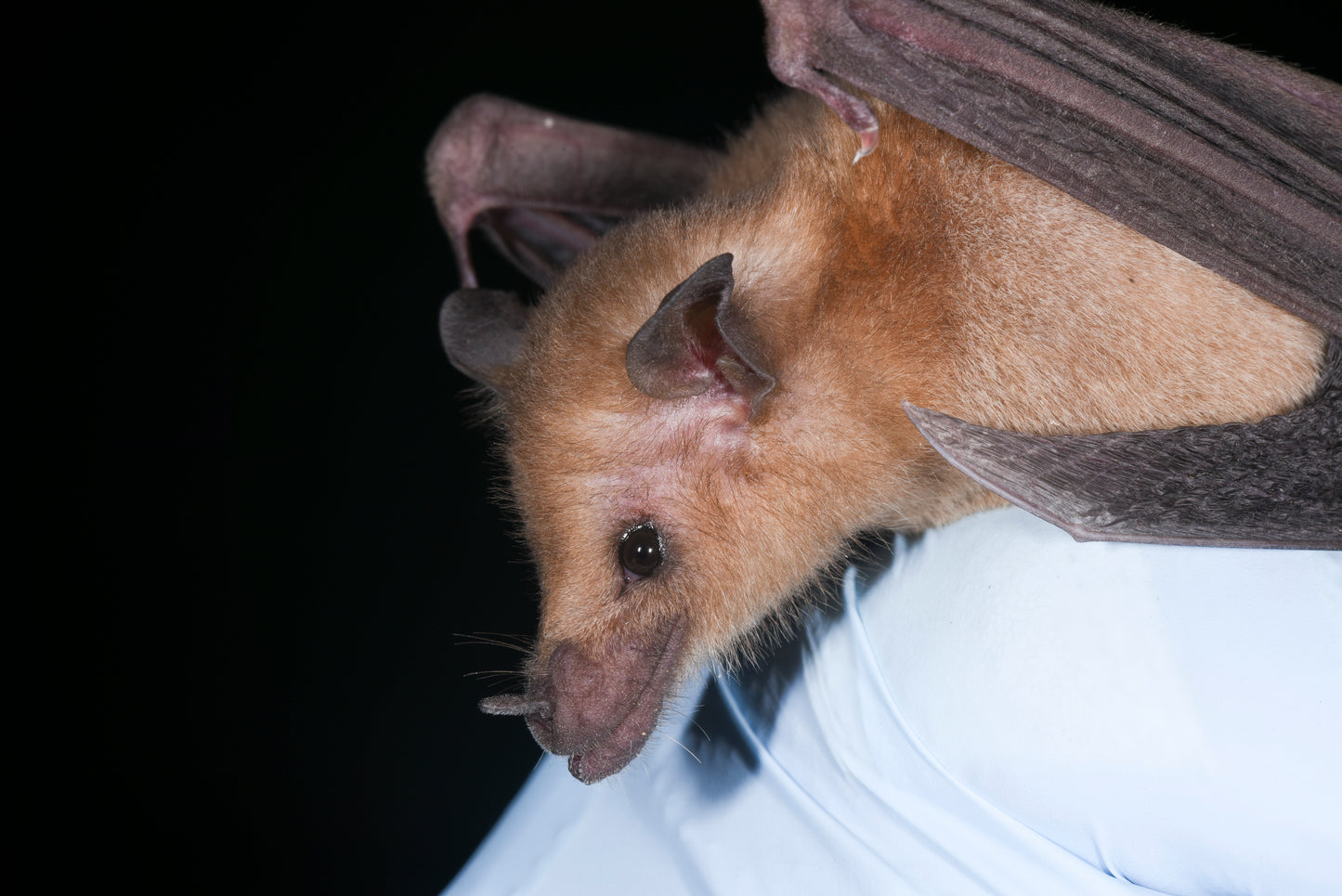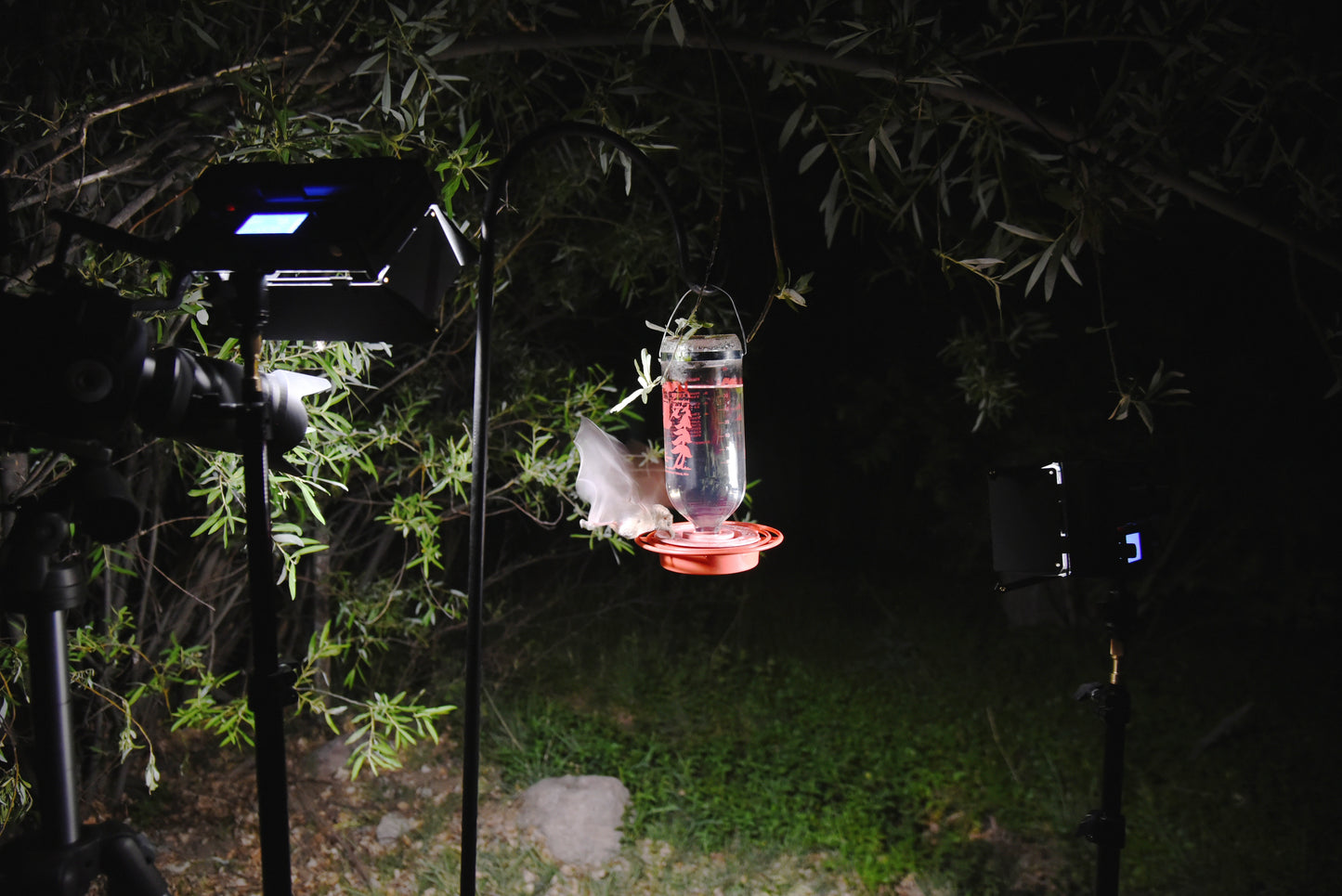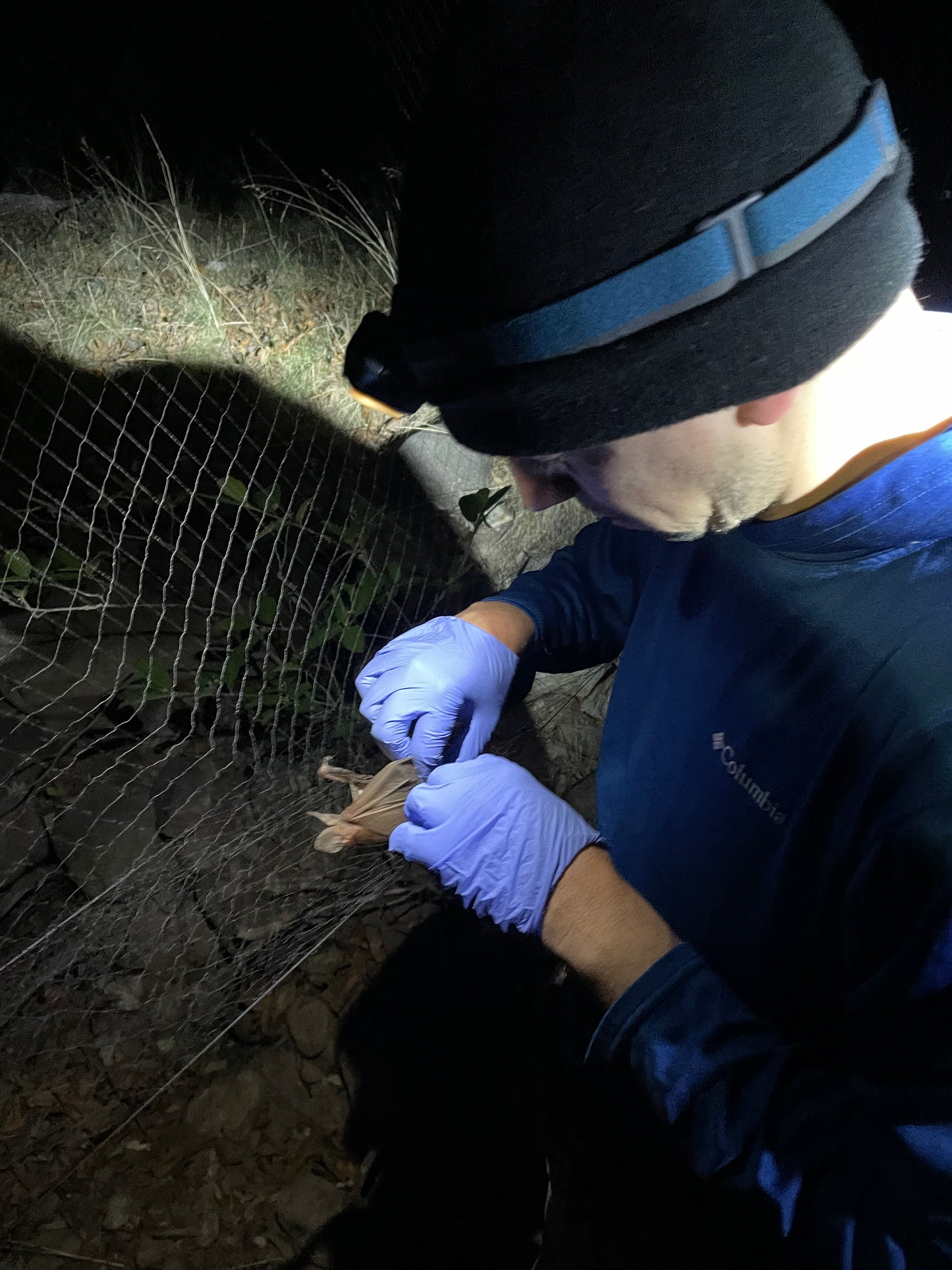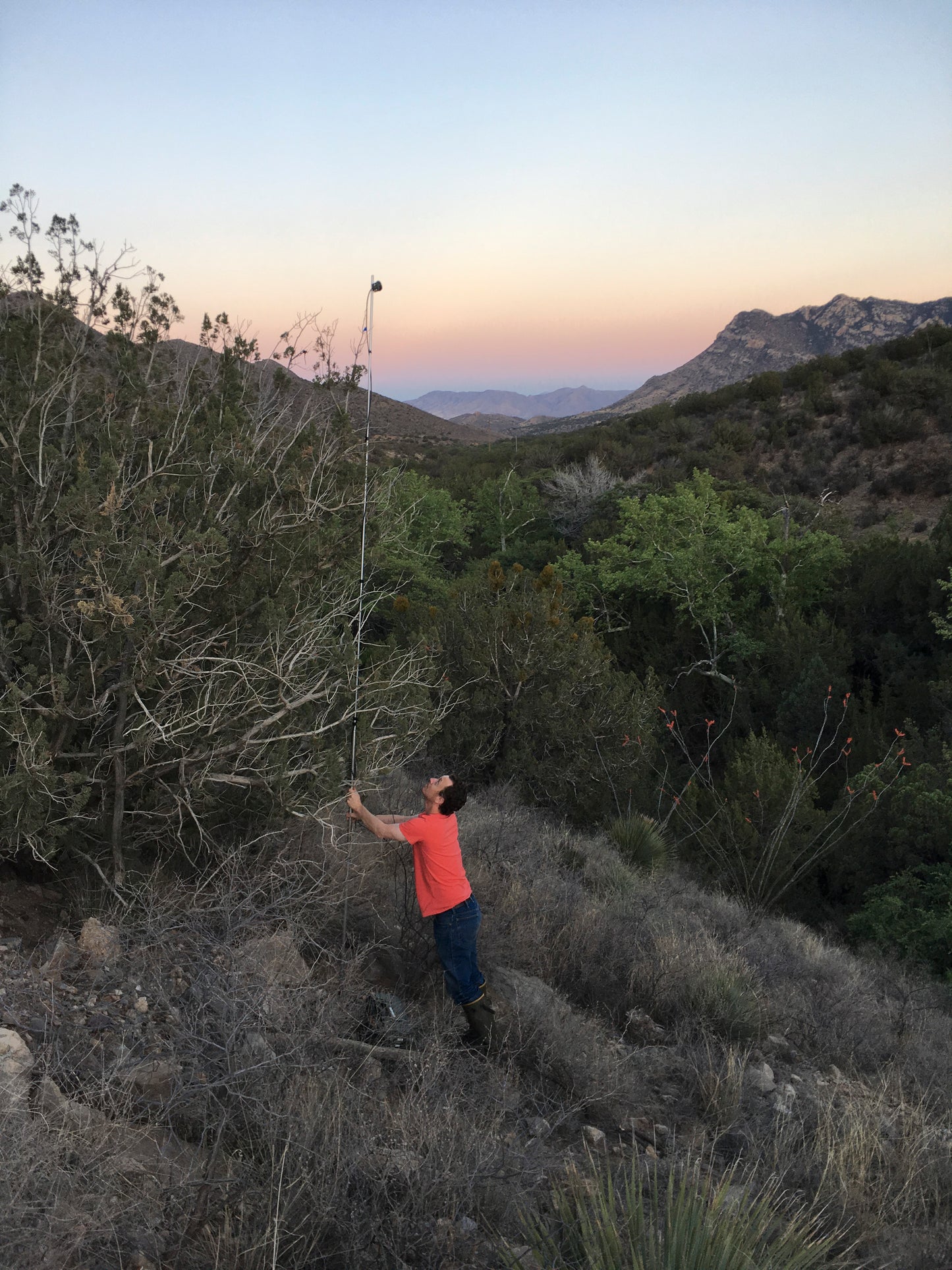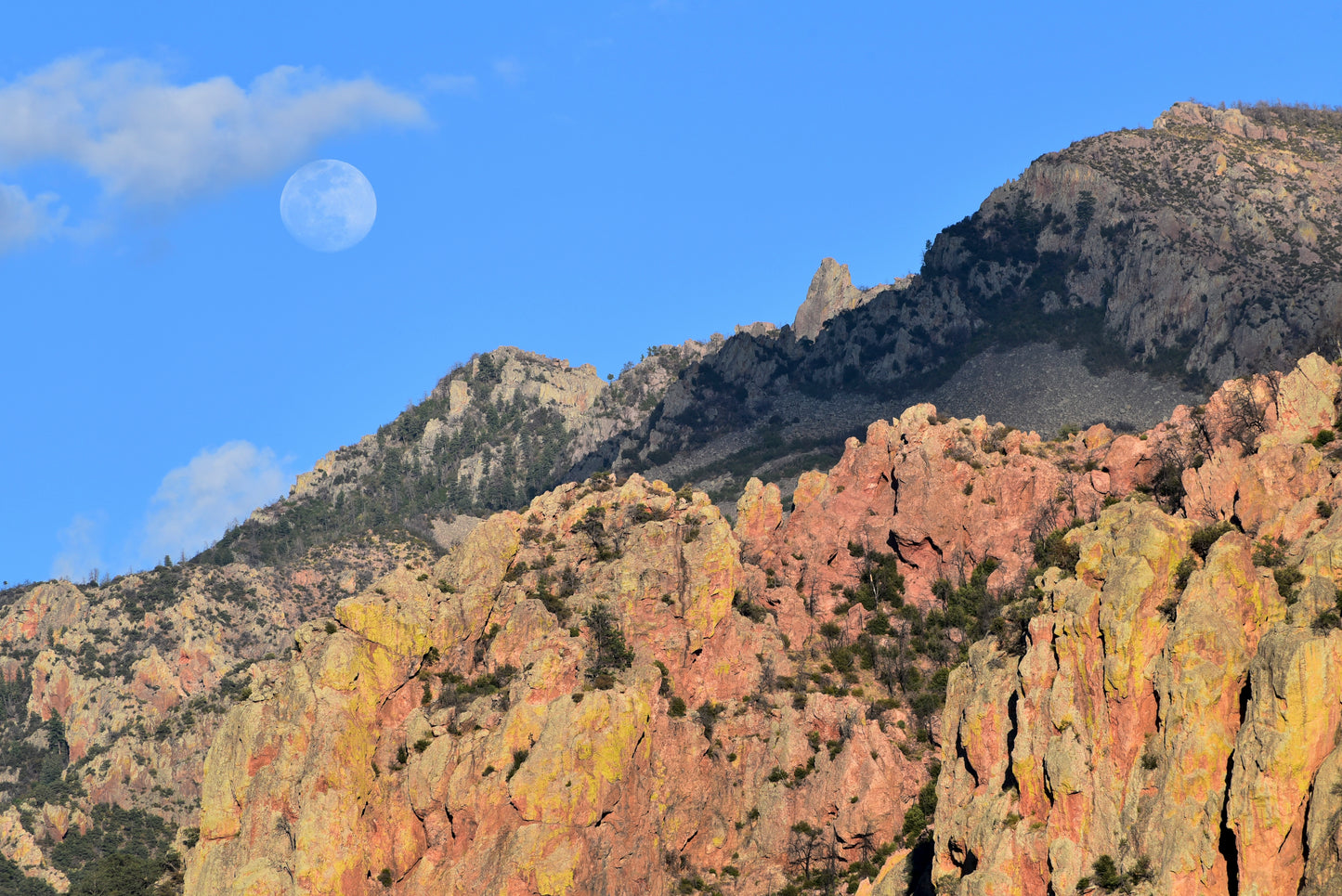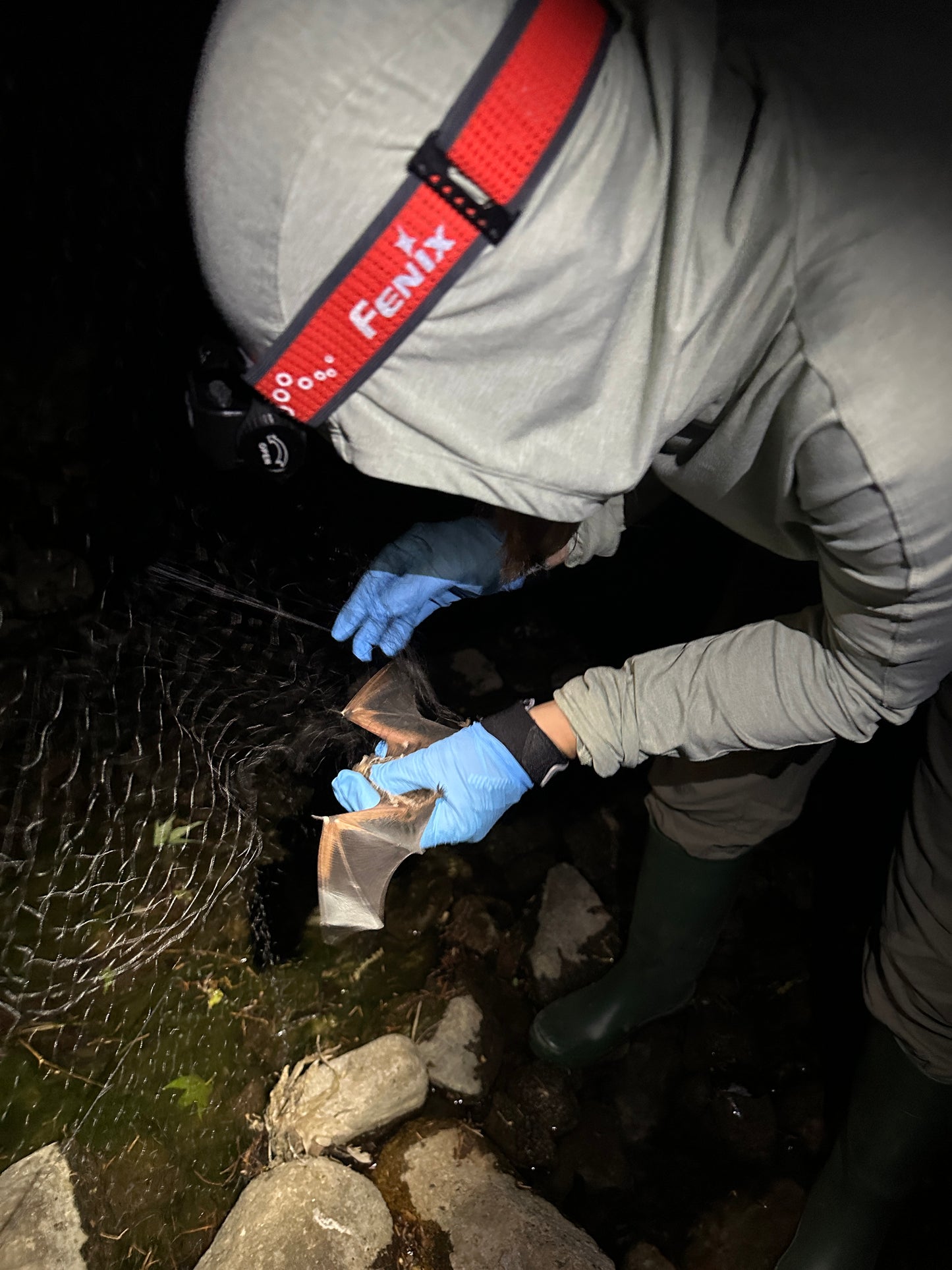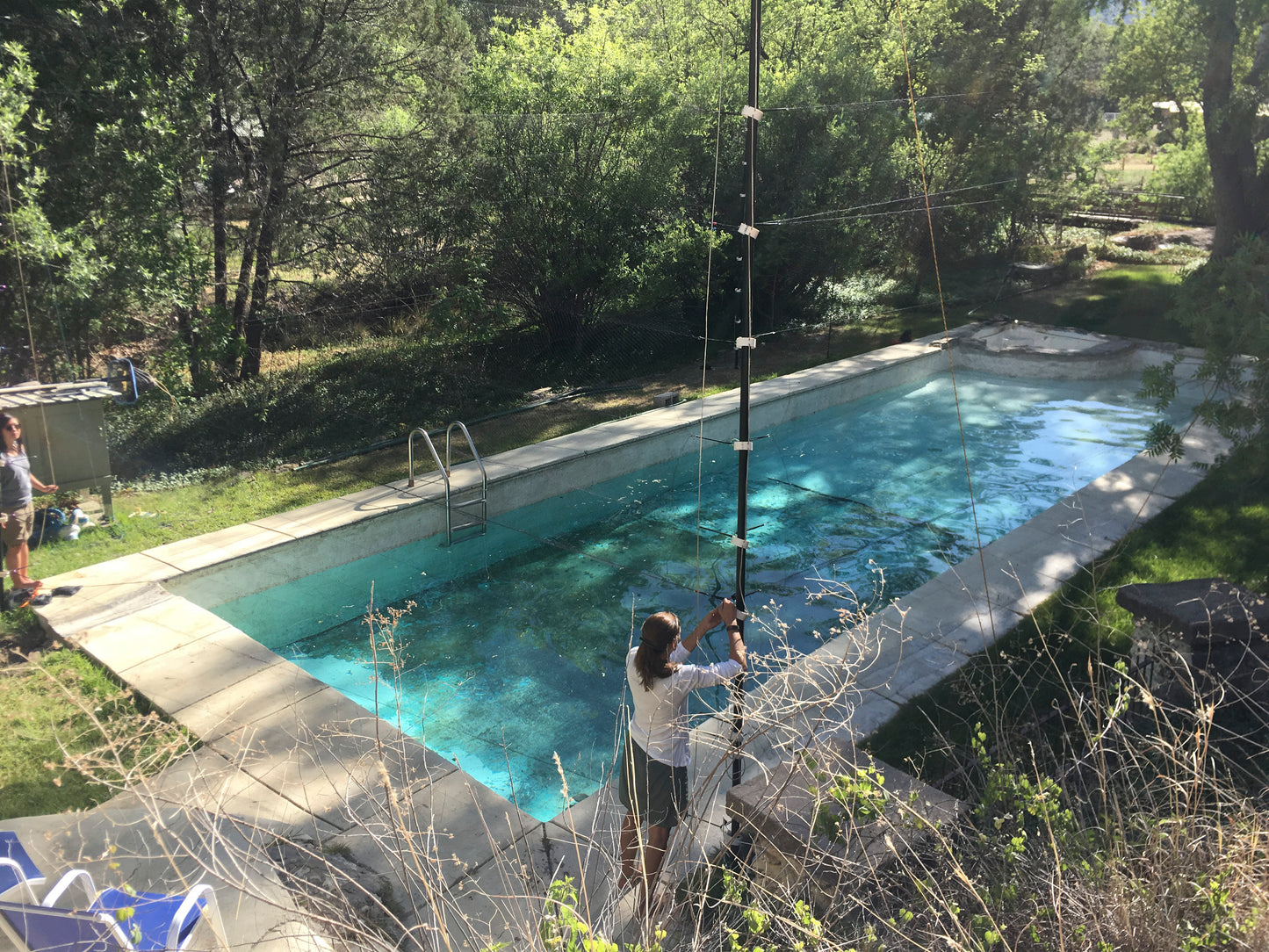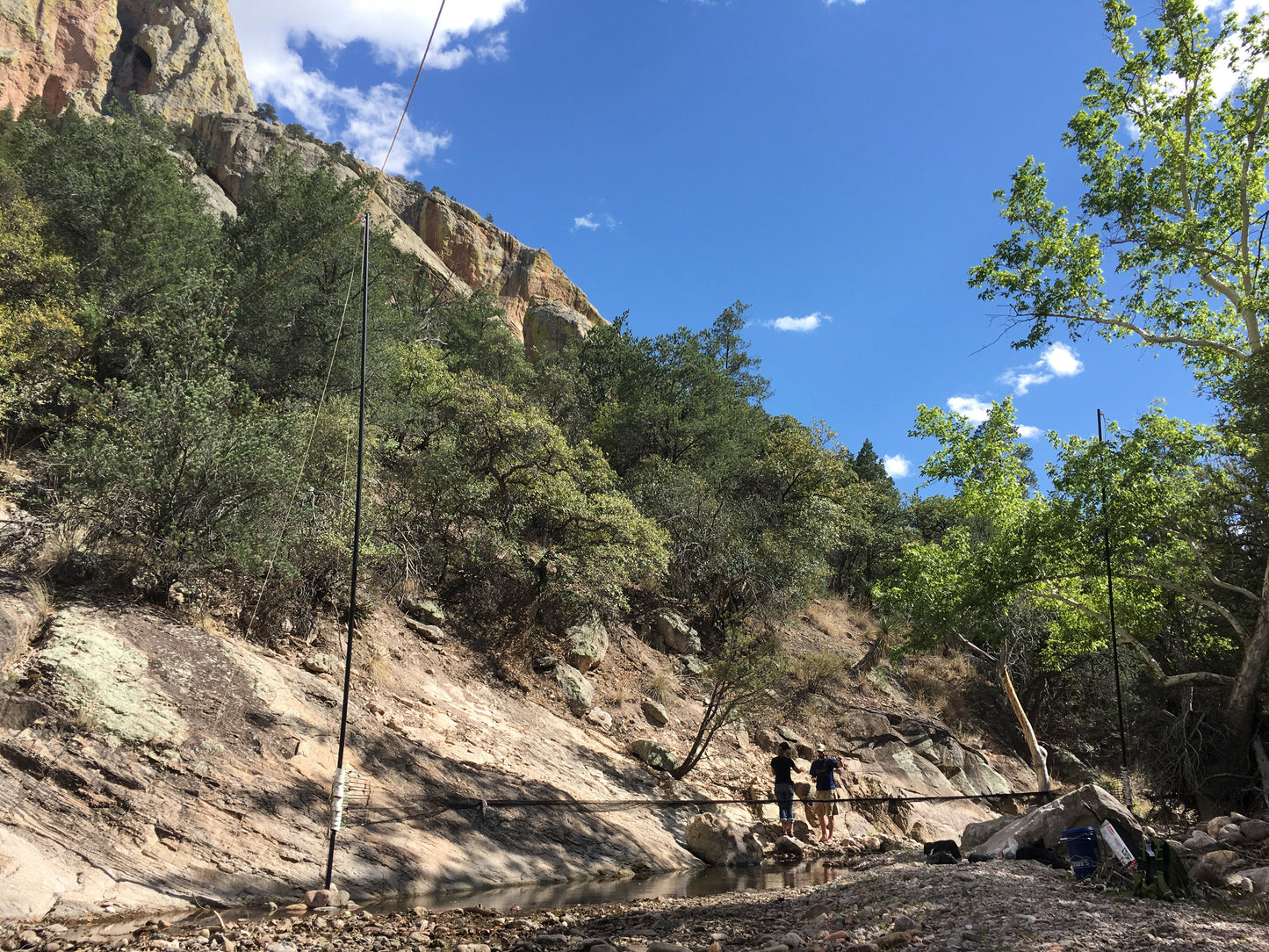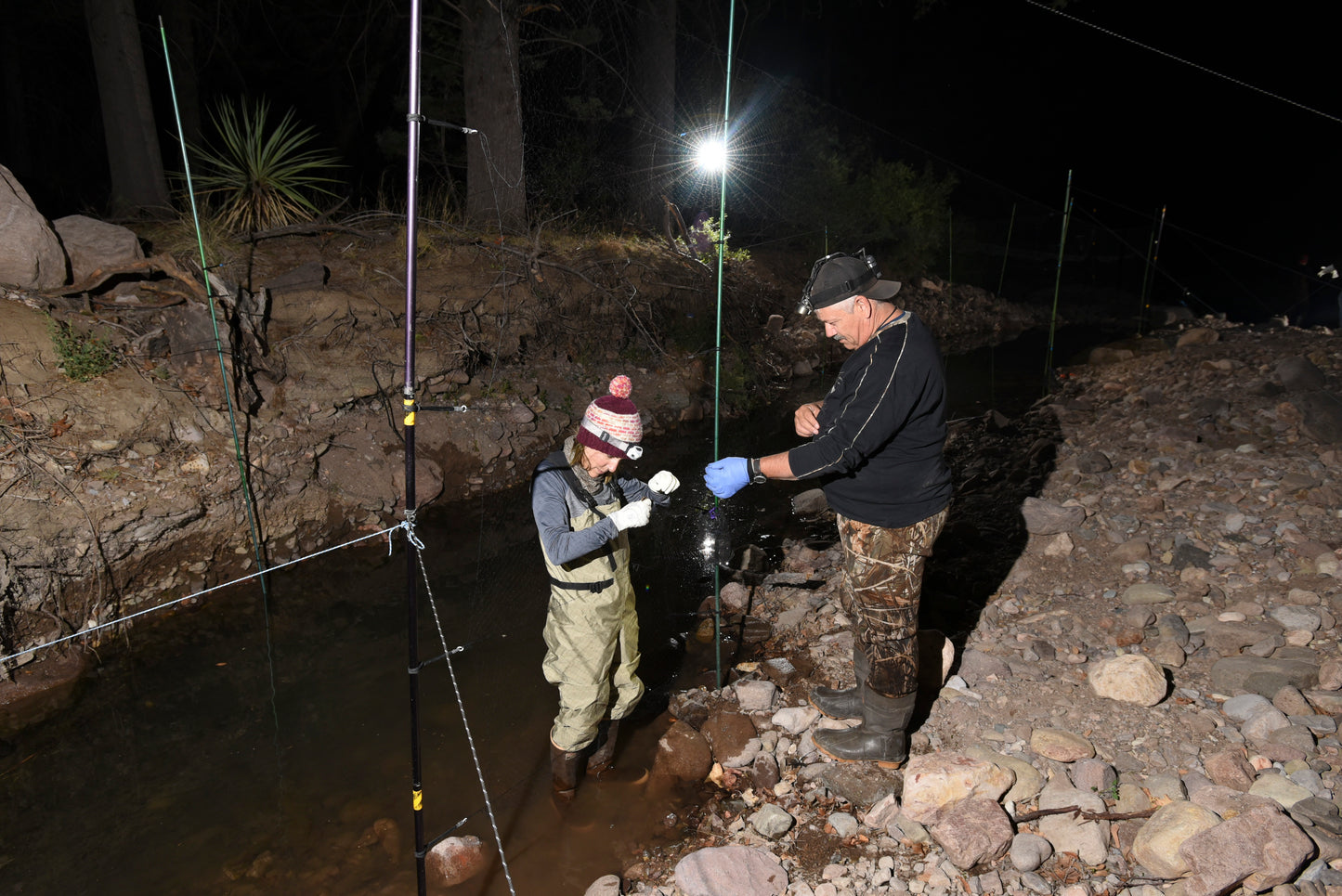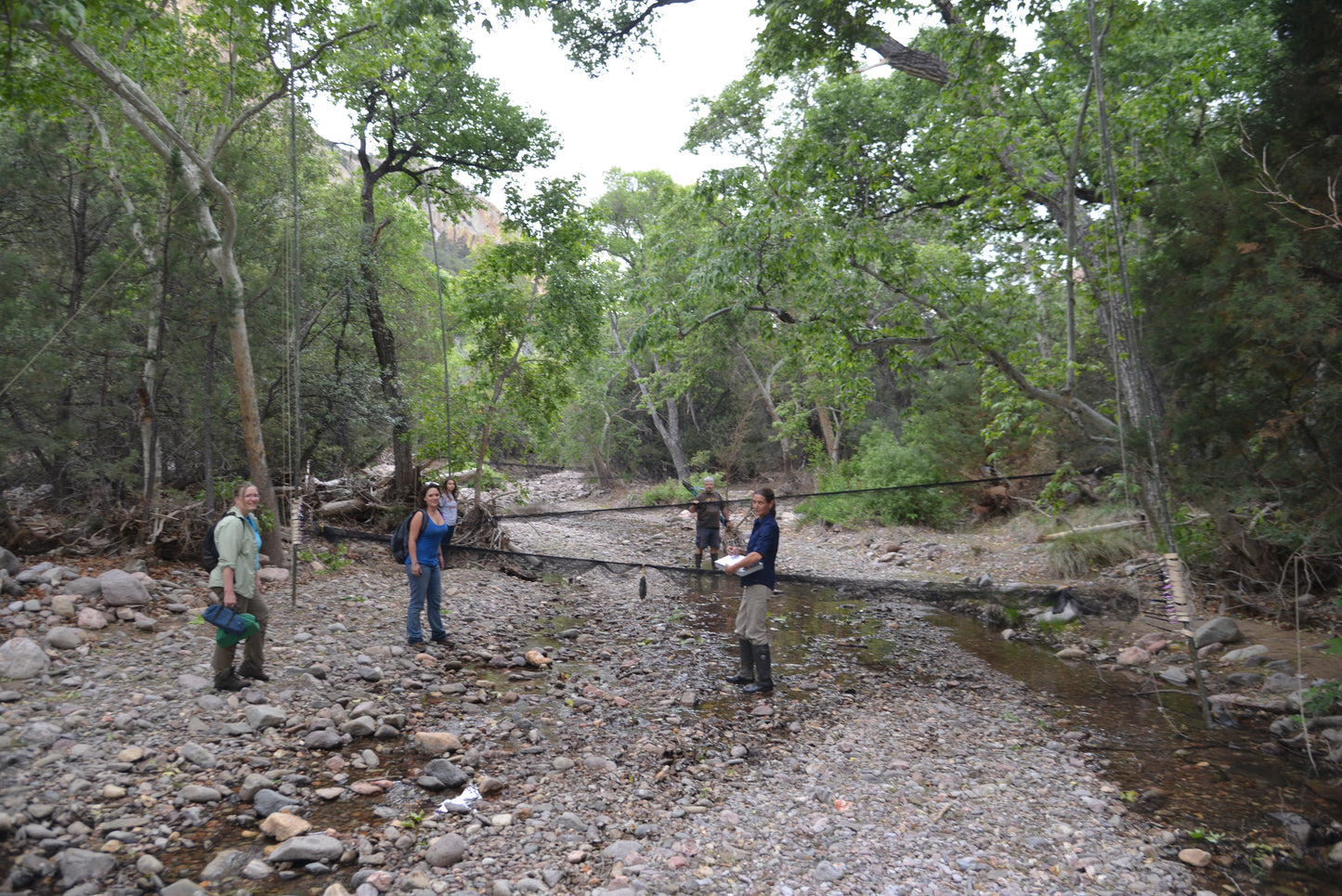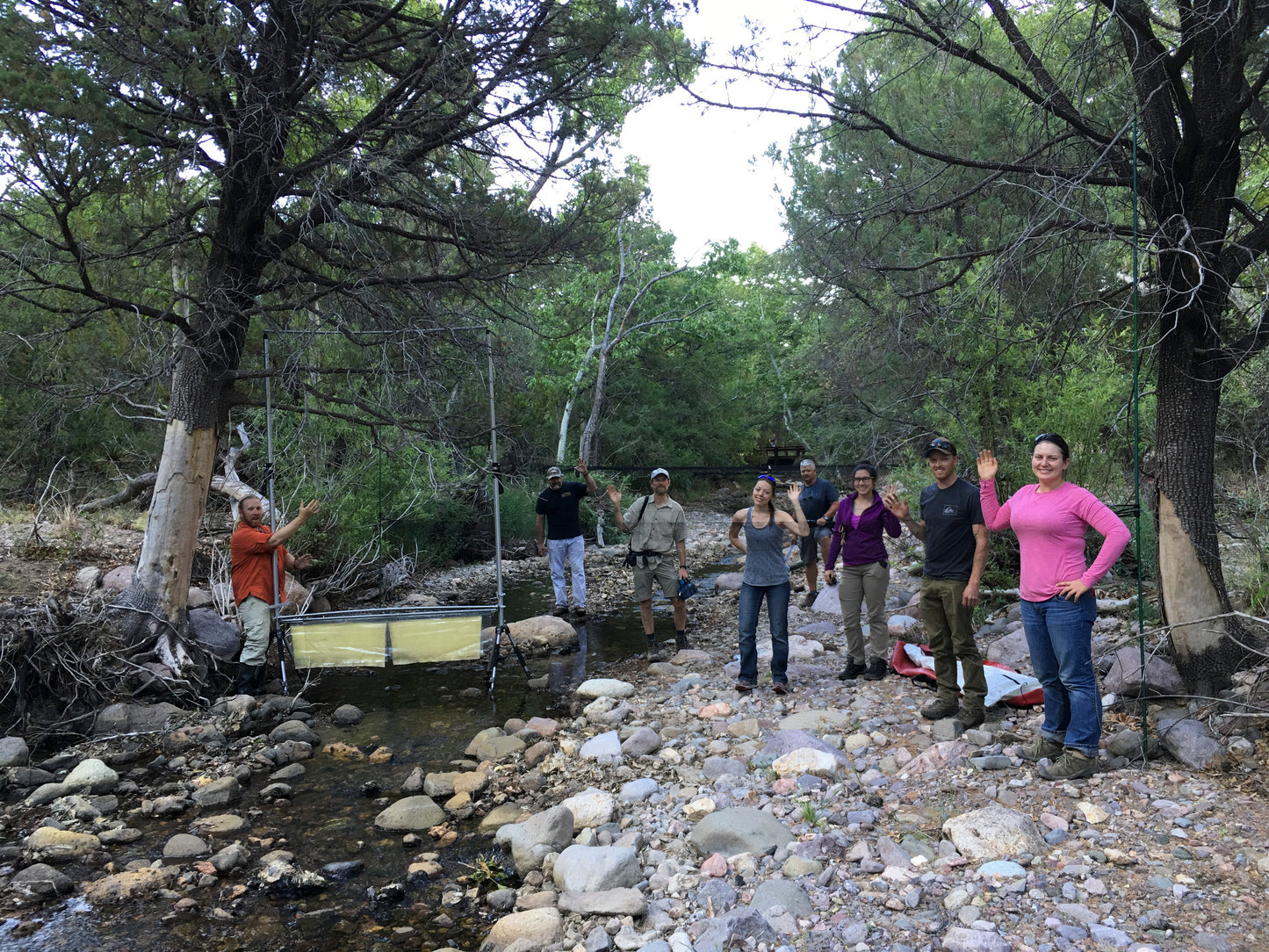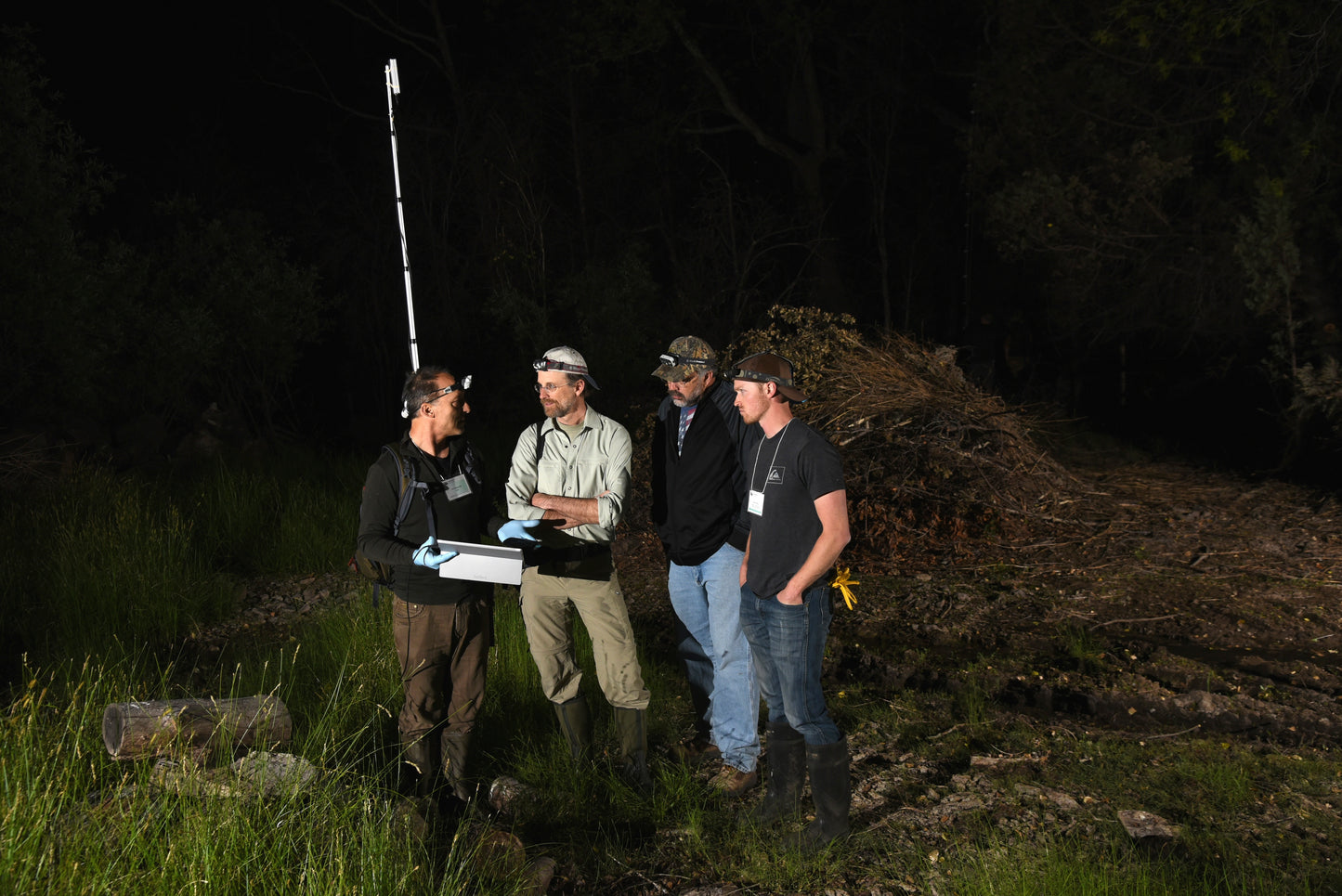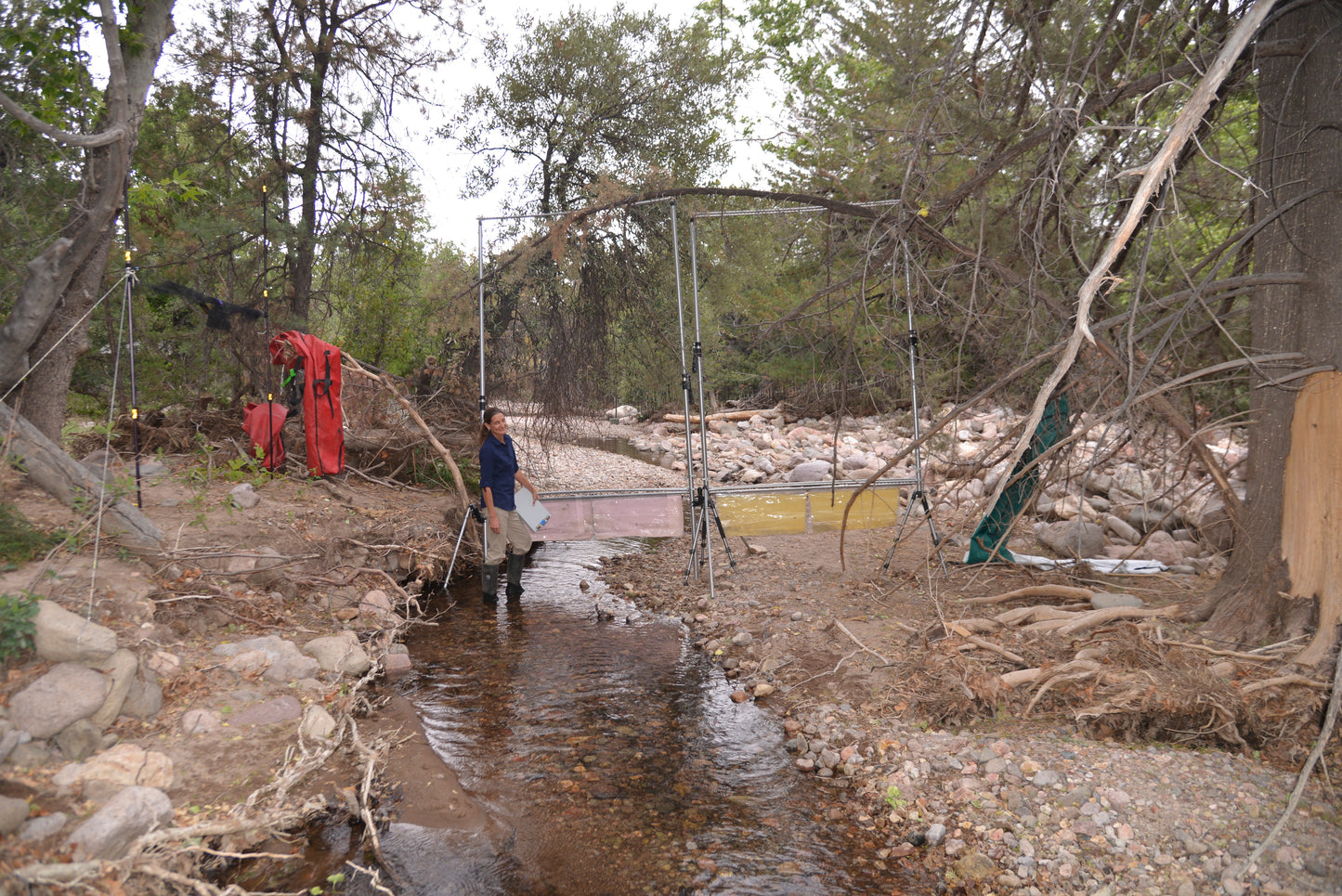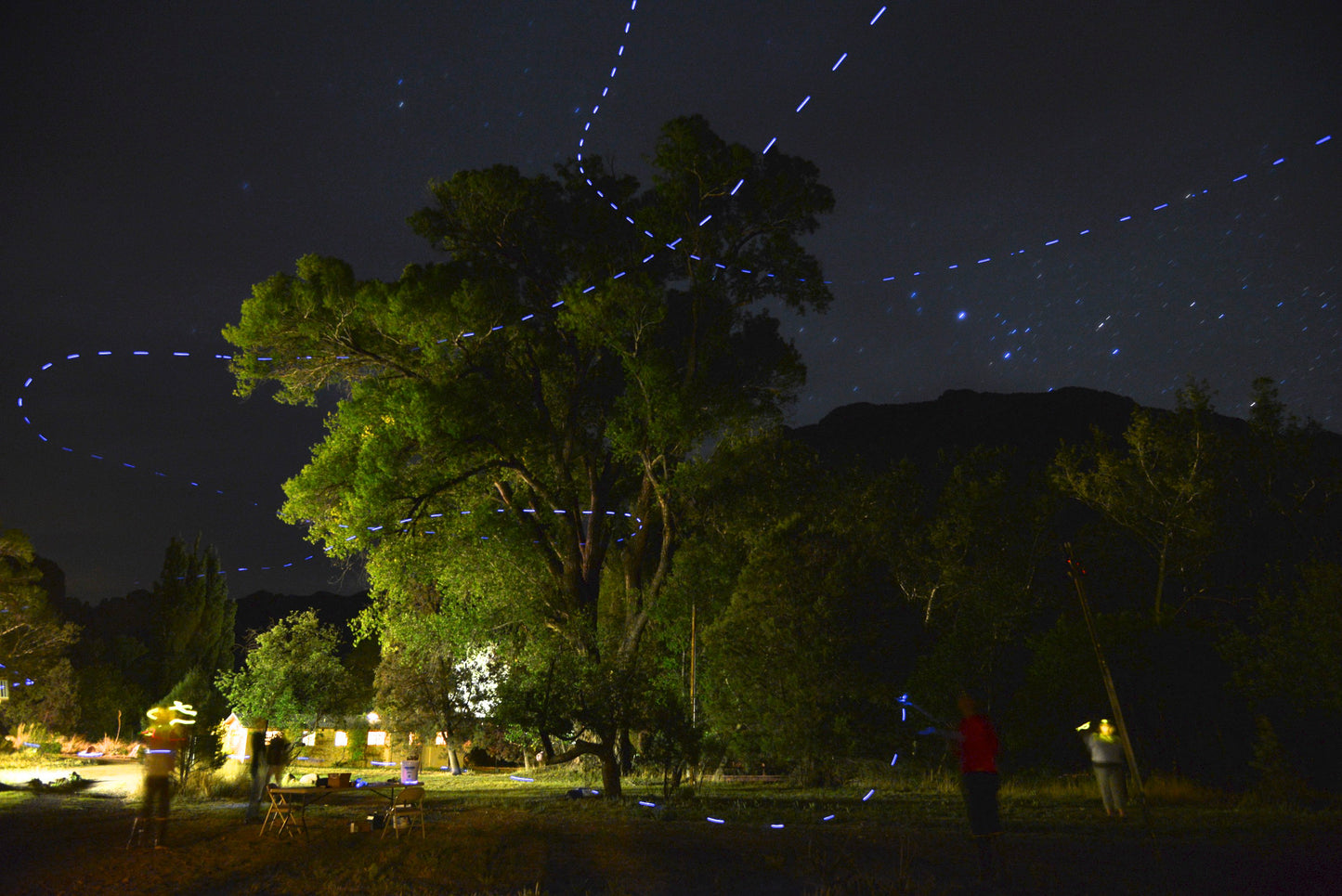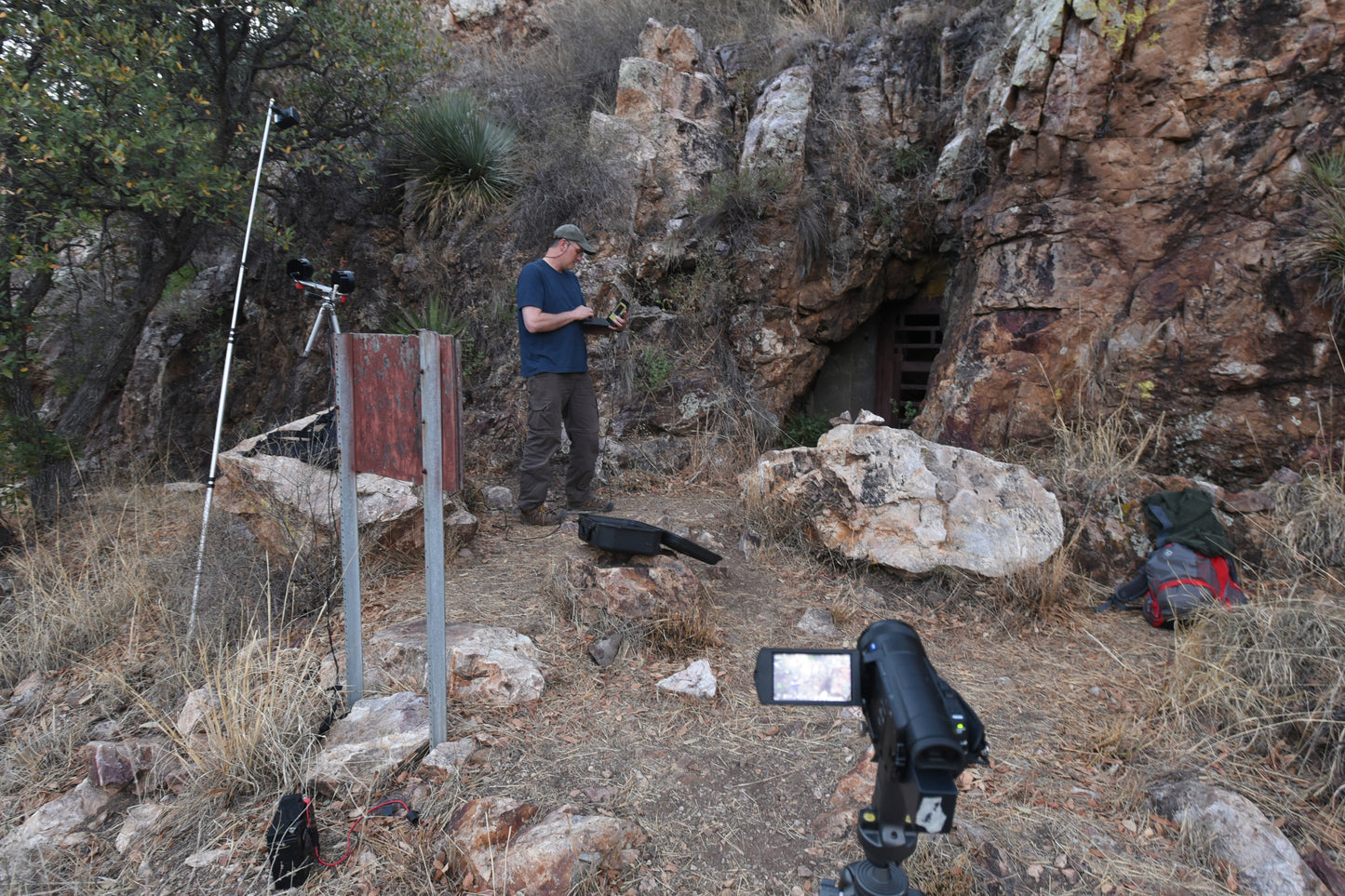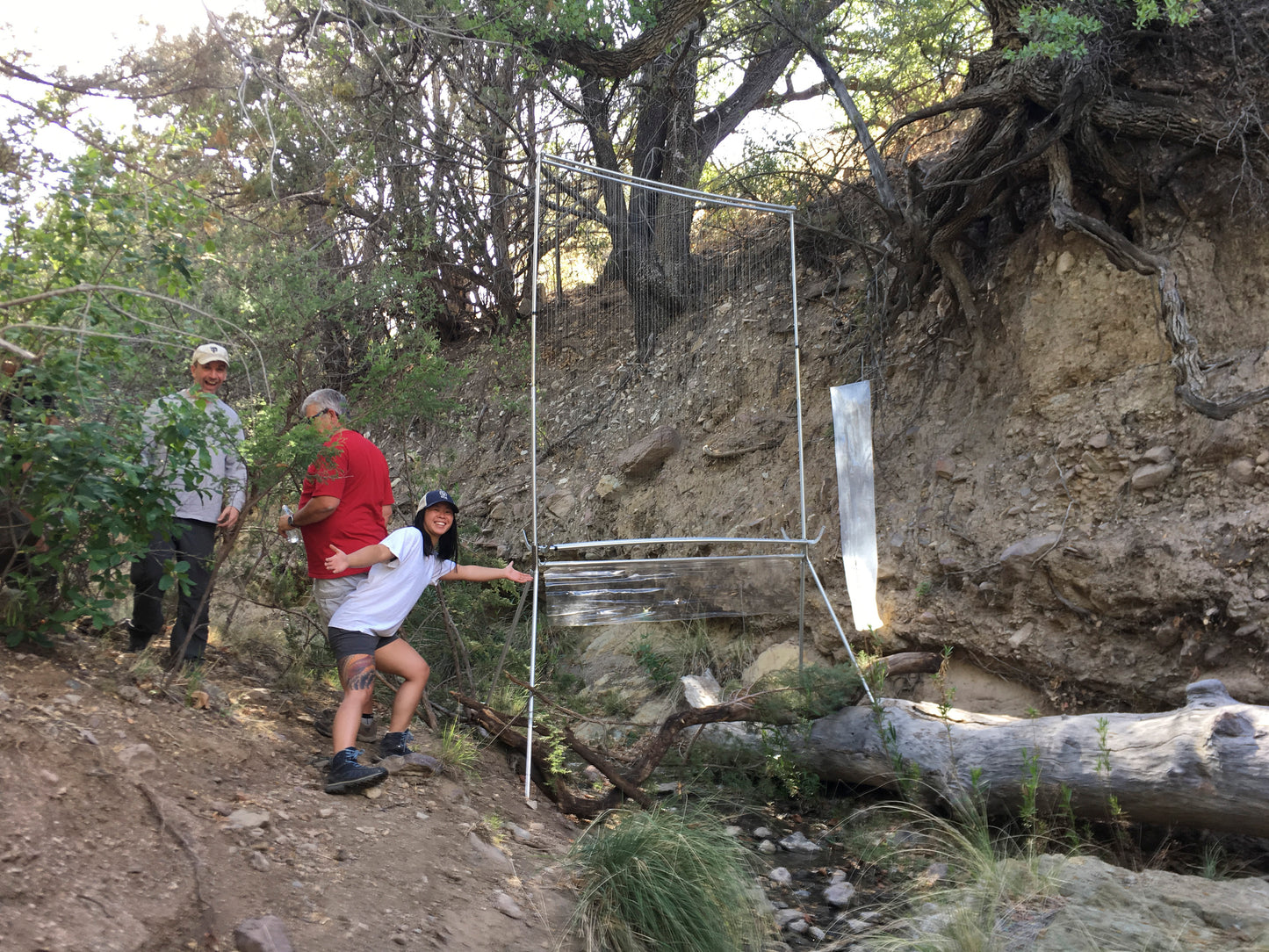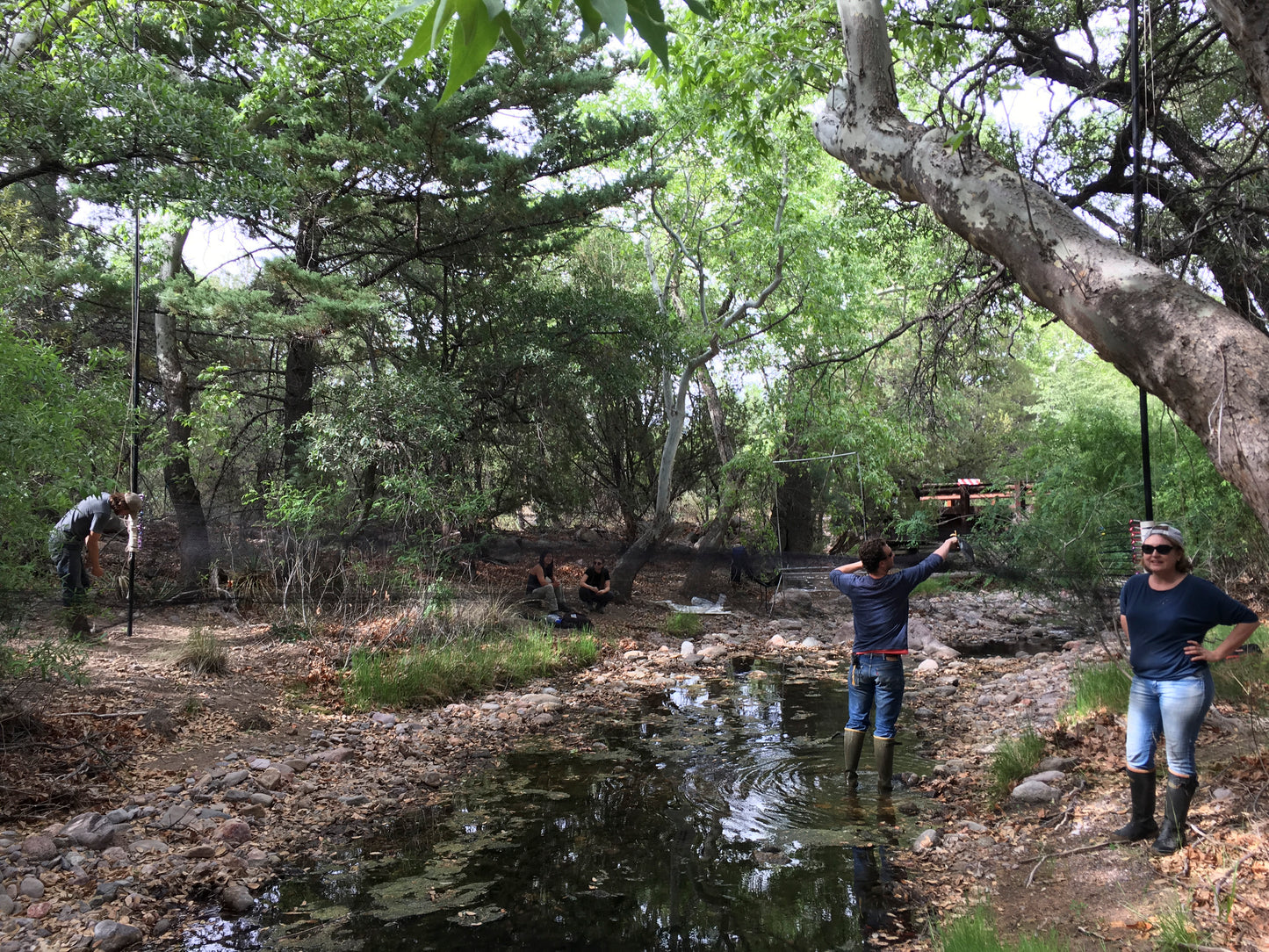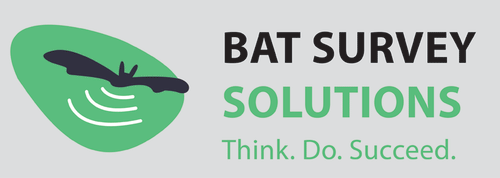Bat Survey Solutions
Combined Field Survey Techniques: AZ (Portal) - 2025
Combined Field Survey Techniques: AZ (Portal) - 2025
Couldn't load pickup availability
VENUE DETAILS
Tuition includes meals & on-site lodging at the Southwestern Research Station in Portal AZ
June: Sunday 15 thru Sunday 22 2025
A ½-day off is scheduled mid-way thru the week to allow students to rest up from our packed schedule and explore the other fantastic natural resources of the local area.
Location and Directions: The American Museum of Natural History's Southwestern Research Station is located about 5-miles from the tiny town of Portal in the Chiricahua Mountains of southeastern Arizona, near the New Mexico border. This is an area of unparalleled species diversity and bats are no exception. We can expect to catch and release up to 20-species of bats during the week, with recordings of 1 or 2 more. This is all within just 5-miles of the Station, making this the most species rich area for bats, north of Mexico. NOTE: Students must make their own travel arrangements to the workshop location. Arizona does not participate in Daylight Savings and remains on Mountain Standard Time (MST) year round. There is no reliable cellphone service at the Station or within the canyon at the vast majority of our field sites.
Airport(s): The nearest airport is Tucson International (TUS), which is about 150 miles (3 hours) by vehicle. Other convenient airports include Phoenix Sky Harbor (PHX - 250 miles; 4-1/2 hours), and El Paso International (ELP - 215 miles; 4 hours).
Lodging: 7-nights lodging is provided on-site at the Station. Lodging is "dormitory style" with 2 to 3 people sharing a room (most rooms are double-occupancy). Private lodging is not available, but may be possible at an extra charge, only if the Station has availability. Rooms are climate-controlled. All linens and towels are provided. A community refrigerator is available for student use in the meeting room. WiFi is available, but 100% up-time is not guaranteed due to our remote location. Due to lack of other nearby lodging options, all students must stay on site.
Meals: 20 meals are provided on-site, beginning with dinner on Day 1, then including breakfast, lunch and dinner every day thereafter, and ending with breakfast on Day 8. Vegetarian or "No Red Meat" options are available with advance-notice (see participant pre-survey form for details on recording a food preference). Day long coffee service is available in our meeting room.
Pre-course Preparation: There is no pre-requisite for this training. The curriculum, demonstrations, and field practicums are designed to provide a comprehensive overview of applied bat survey methods for North American species. Students should be prepared to hike over uneven terrain, at night, carrying personal gear and up to 50-pounds of field gear. The elevation around Portal is over 5,000-feet and we have the opportunity work at elevations from 3,000 to 9,000-feet, in habitats from desert scrub to alpine forests. Students must bring appropriate field gear including appropriate clothing and footwear for working outdoors, head-lamps and light sources for navigating at night, and basic personal items. All survey equipment for capturing and recording bats is provided, but students are encouraged to bring their own bat detectors, if available, to help with designing recording schedules, refining settings, and troubleshooting successful field use.
All students must have rabies pre-exposure vaccinations and should be fully-vaccinated against COVID to handle bats.
No prior bat-work experience is necessary. Students wishing to handle bats must obtain the rabies pre-exposure vaccination. This is a now a 2-shot series that should be started at least two-months prior to class. Those already vaccinated can provide acceptable titre results or proof of booster. More information about the rabies pre-exposure vaccination is included HERE. Approximately ten-days prior to the start of class, students will receive a complete list of what to bring and how to prepare for class, but feel free to contact us at any time if you have specific questions about the class or how to prepare. A sample agenda for our field survey training classes is available for download HERE. Complete White Nose Syndrome information, including the latest references about the disease in bats and important conservation and management steps to reduce its impact during this class, will be included in pre-course materials to registered participants.
How to Register: Please register by ordering online. NOTE: To register multiple people, please checkout each person individually so that we can obtain the proper contact information for each participant. Use the Student Registration Details link to provide complete student information for our records.
